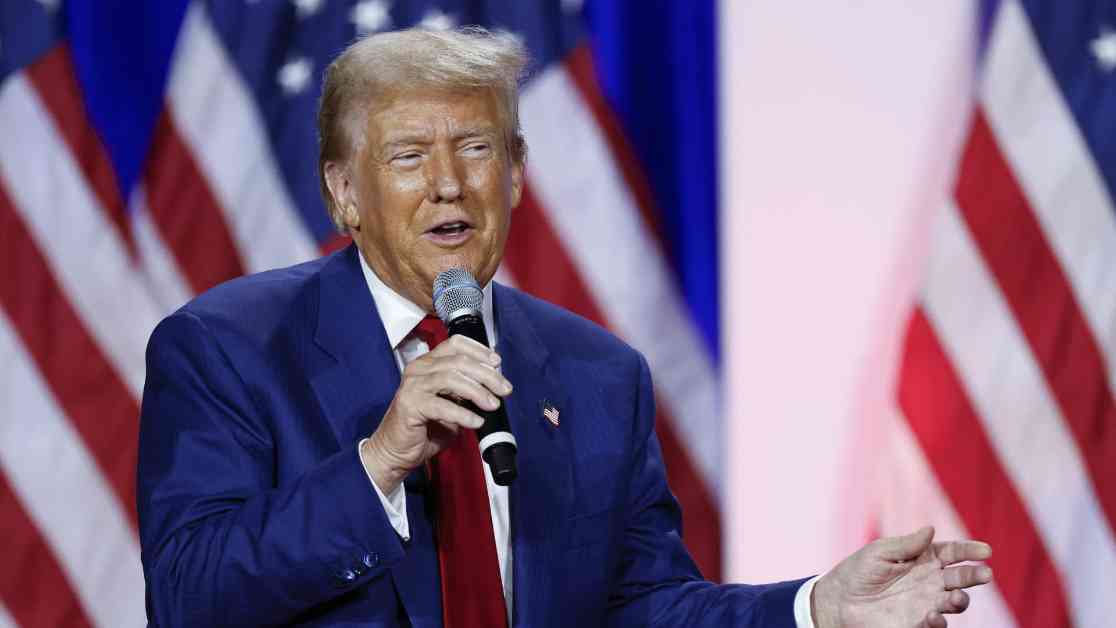Trump Voices Support for Marijuana Legalization in Florida
Former US President and 2024 Republican presidential candidate Donald Trump recently expressed his support for the legalization of marijuana in Florida, emphasizing the importance of implementing the measure correctly. Speaking at a town hall meeting in La Crosse, Wisconsin, Trump addressed the topic, highlighting the need for laws to regulate the use of marijuana to ensure public safety and order.
Trump acknowledged the growing trend of states legalizing marijuana for personal use and emphasized that the decision should ultimately be in the hands of the voters. He stated, “In Florida, like so many other States that have already given their approval, personal amounts of marijuana will be legalized for adults with Amendment 3.” However, he also called on the state legislature to establish regulations that would prohibit the use of marijuana in public spaces to prevent any potential negative impact on communities.
Ensuring Responsible Legislation
The former president framed his support for marijuana legalization within the context of his “Make America Safe Again” agenda, highlighting the potential benefits of decriminalizing the drug. Trump argued that arresting adults for possessing personal amounts of marijuana would be a waste of taxpayer dollars and suggested that regulating its use could contribute to public safety.
He further emphasized the need for measures to prevent the sale of marijuana laced with dangerous substances like fentanyl, which has been a growing concern in communities across the country. Trump stated, “no one should grieve a loved one because they died from fentanyl-laced marijuana. We will make America SAFE again!”
The Impact of the Marijuana Ballot Measure
If passed, the marijuana ballot measure in Florida would allow adults aged 21 and older to possess, purchase, or use marijuana products and accessories for non-medical personal consumption. The state Supreme Court ruled to include the measure on the 2024 ballot, reflecting the growing momentum towards marijuana legalization in the state.
Trump’s support for the measure comes in the midst of a broader national conversation on drug policy and public health. As more states consider legalizing marijuana, the debate over regulation and enforcement has become increasingly prominent. Trump’s call for responsible legislation in Florida reflects a larger trend towards balancing personal freedoms with public safety concerns.
Clarifying Stance on Abortion Rights
In addition to his comments on marijuana legalization, Trump also addressed another contentious issue in Florida – the constitutional right to abortion. Initially facing criticism for his stance on a ballot measure that would guarantee this right, Trump clarified his position in response to concerns from anti-abortion rights advocates.
After initially expressing reservations about the six-week abortion ban in Florida, Trump faced backlash from anti-abortion rights groups, who questioned his commitment to their cause. However, he later clarified his stance, stating that he would be voting against the abortion rights ballot measure, Amendment 4.
Trump’s handling of the abortion rights issue underscores the complex and often divisive nature of social policy debates in the United States. As the former president navigates these contentious issues, his decisions are closely scrutinized by supporters and critics alike, reflecting the broader political landscape in Florida and beyond.
Conclusion
In conclusion, Donald Trump’s support for marijuana legalization in Florida and his stance on abortion rights highlight the complexities of social policy and public health debates in the United States. As the former president continues to engage with these issues, his statements and positions shape the national conversation on drug policy, public safety, and reproductive rights. Moving forward, the implementation of the marijuana ballot measure in Florida and the ongoing debate over abortion rights will remain key points of contention and discussion in the state and across the country.






















